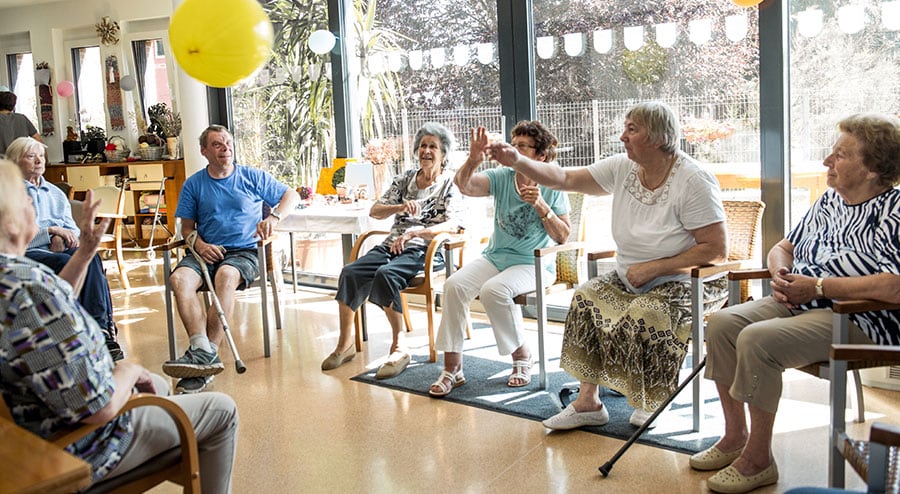Finding the Right Assisted Living Remedy for Tailored Memory Care Programs
The procedure of selecting an ideal assisted living remedy for customized memory care programs calls for a nuanced understanding of private demands, especially as they connect to cognitive disabilities such as Alzheimer's and mental deterioration. It is essential to assess not just the certifications of the staff yet likewise the accessibility of customized care strategies that accommodate the specific obstacles homeowners face. Furthermore, the impact of appealing tasks and a helpful area can not be overemphasized. As we discover these aspects, the concern stays: what really constitutes an optimum atmosphere for memory care?
Recognizing Memory Care Needs
Understanding the unique memory care needs of individuals with cognitive problems is crucial for providing efficient assistance and boosting top quality of life. Cognitive disabilities, including Alzheimer's disease and various other kinds of dementia, considerably influence an individual's capacity to procedure information, interact, and preserve freedom. Because of this, customized methods are necessary in resolving these obstacles.
Individuals with memory problems frequently experience confusion, state of mind fluctuations, and disorientation, demanding a helpful and organized setting. Memory treatment programs must concentrate on producing a secure room that motivates social interaction, cognitive engagement, and emotional well-being. This can be achieved with specialized activities, such as memory video games, art therapy, and reminiscence sessions, which promote cognitive excitement and maintain personal identity.

Evaluating Personnel Qualifications
The certifications of team members in memory treatment programs are critical to providing high-grade support for people with cognitive impairments. Assessing staff certifications entails analyzing both academic history and practical experience in geriatric care, especially in memory-related problems such as Alzheimer's and various other types of dementia.
Try to find staff who have appropriate qualifications, such as Qualified Mental Deterioration Specialist (CDP) or specialized training in memory treatment. These credentials show a dedication to understanding the complexities of cognitive decline and reliable interaction strategies tailored to locals' unique requirements. Furthermore, inquire about recurring training chances that team member participate in, as continual education is vital in a field that progresses swiftly with brand-new research and finest practices.
In addition, evaluate the staff-to-resident proportion, as this directly impacts the high quality of treatment. Ultimately, a professional group is paramount in fostering an environment that enhances the dignity and top quality of life for individuals in memory treatment.
Importance of Personalized Treatment Plans
Personalized care plans play a critical role in enhancing the wellness of people in memory care programs. These plans are customized to the unique needs, preferences, and capabilities of each local, guaranteeing that treatment is both pertinent and effective. By considering variables such as case history, cognitive function, and individual passions, caretakers can produce a detailed approach that promotes self-respect and regard for every individual.
The value of personalized care strategies expands beyond basic care requirements; they foster a feeling of safety and experience, which is essential for people experiencing memory obstacles. By addressing certain behavioral patterns and psychological reactions, caretakers can implement techniques that reduce anxiety and boost general high quality of life.
Furthermore, individualized care plans promote far better interaction among personnel, family members, and health care carriers. This collaborative strategy makes sure that everybody entailed is informed and lined up in their care efforts, leading to even more constant and reliable assistance. Eventually, a well-structured personalized care plan is important in memory treatment programs, as it not just enhances everyday living experiences however additionally adds to the long-lasting wellness and happiness of homeowners.
Engaging Tasks and Programs

Activities such as art treatment, songs sessions, and memory treatment supply methods for self-expression and cognitive interaction. These purposeful interactions not just help in protecting cognitive capabilities yet also use psychological benefits, minimizing feelings of seclusion and anxiety that often accompany amnesia.
Additionally, organized team tasks can encourage socializing, which is crucial for emotional health - Assisted Living. Regular engagement in video games, exercise classes, and neighborhood outings develops an environment of camaraderie and assistance. Tailored programs that take into consideration private passions and backgrounds further improve engagement, making activities more meaningful and efficient
Including modern technology, such as memory games and virtual truth experiences, can also offer to improve the day-to-days live of locals, giving innovative ways to promote cognitive function. Eventually, a focus on engaging activities and programs is essential for fostering a helpful setting that promotes alternative health in memory care settings.

Assessing Neighborhood Environment
When evaluating an area atmosphere for memory treatment programs, it is important to take into consideration aspects that contribute to the overall wellness and security of locals. The physical design of the community ought to prioritize accessibility and navigation, lessening barriers while giving clear signs and acquainted sites. A safe setting is important to protect against homeowners from wandering, which can pose safety and security risks.
Furthermore, the sensory elements of the neighborhood, such as lighting, color plans, and sound levels, play a considerable duty in boosting comfort and decreasing stress Memory Care Charlotte and anxiety among locals. Natural light and outside areas promote engagement with nature, fostering a calming environment that can profit cognitive function.
An additional important facet is the availability of qualified team that understand the distinct demands of individuals with memory problems. Personnel ought to be outfitted to produce a caring atmosphere that motivates social communication and psychological assistance.
Last but not least, the sense of neighborhood and belonging is important. Engaging family members involvement and chances for residents to form connections with peers can substantially improve their general lifestyle. Assisted Living. By very carefully analyzing these aspects, households can make educated decisions regarding the most ideal memory care neighborhood for their liked ones
Final Thought
To conclude, choosing a proper assisted living option for customized memory treatment programs demands a thorough assessment of private requirements and preferences. Prioritizing personnel credentials, personalized treatment strategies, engaging activities, and a supportive neighborhood environment is essential for enhancing the quality of life for citizens facing cognitive difficulties. By attending to these crucial factors, families can guarantee that their enjoyed ones get the required assistance and like promote psychological health and cognitive stimulation in a nurturing setup.